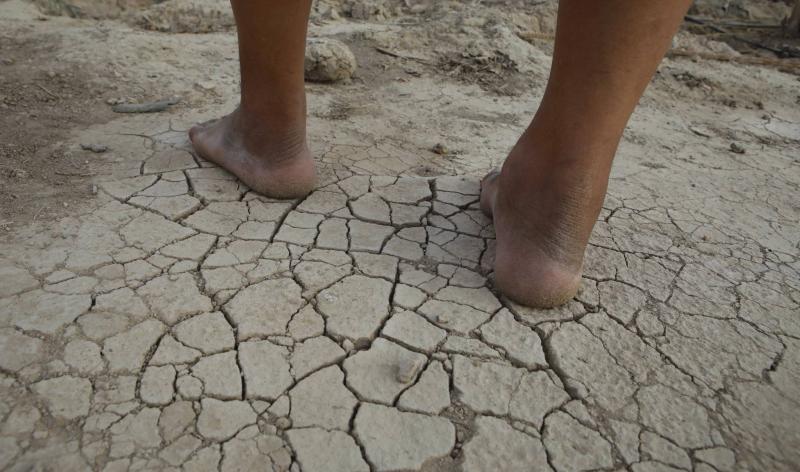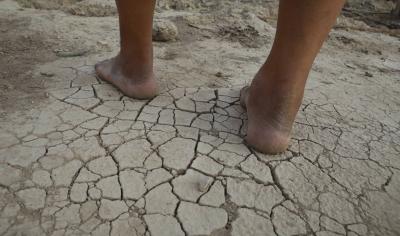In a clear indication of the severe weather effects caused by climate change and its impact on food security worldwide, the drought that has extended into its third consecutive year has forced Iraq to cut its planted crop area by half, according to a report published by Bloomberg. Agriculture Minister Mohammed Kareem Al-Khafaji stated in a television interview on Friday that the country expects to harvest a maximum of 2.5 million tons of wheat next year, adding that the Ministry of Trade needs to consider the impact of this on the food program and the need to secure additional supplies.
Severe weather has damaged crops across a vast area in the Northern Hemisphere, from North America to the Black Sea, resulting in record-high futures prices for wheat over several years. Although Iraq is not among the largest buyers, the Middle East remains one of the highest wheat importing regions, with Iraq's neighbors, Turkey and Iran—upon which Iraq relies for river water supplies—emerging as major buyers this season.
According to Bloomberg, oil-rich Iraq needs about 4 million to 4.5 million tons of wheat annually to meet its bread needs, despite its total consumption being higher, and the private sector can buy from abroad. Iraq's wheat production for this year reached 3.5 million tons, according to Agriculture Ministry spokesman Hamid Al-Nayef, at a time when production surpassed 5 million tons in 2020. Al-Nayef stated in a phone call with Bloomberg, "We were surprised that the Ministry of Water Resources only approved half of our proposed plan, saying it does not have enough water reserves for the proposed lands."
The winter agricultural plan includes areas for wheat, barley, and other crops. Wheat farmers in the Northern Hemisphere are currently engaged in planting winter grains that will be harvested next summer. However, forecasts indicate that the drought in the Middle East and North Africa will continue until the end of the month, which obstructs early seed planting, according to Commodity Weather Group on Friday.
On another note, Iraqi Water Resources Minister Mahdi Rashid Al-Hamdani stated that the lack of rainfall has also affected Turkey, Syria, and Iran, which is a problem because Iraq typically uses river water coming from Turkey, as well as from some sub-rivers from Iran, for irrigation. Al-Hamdani mentioned that while Turkey is responding to requests for more water supplies, Iran has reduced the amount flowing to its western neighbor, prompting the Iraqi Foreign Ministry to plan to file an international complaint regarding this issue.




